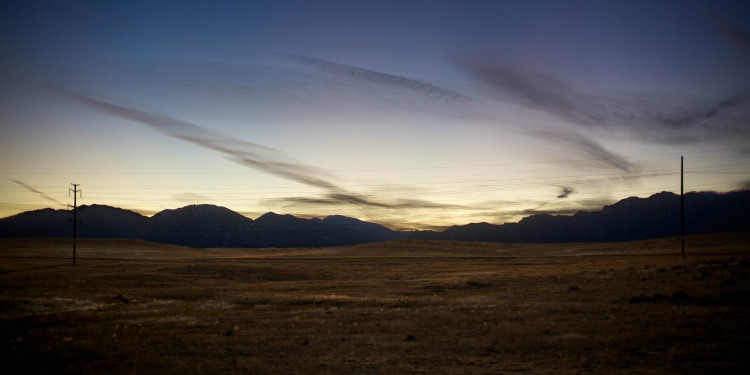The Fear Factor
The Fellowship | December 31, 2017

When I am afraid, I put my trust in you.
In God, whose word I praise—
in God I trust and am not afraid.
What can mere mortals do to me? —Psalm 56:3–4
Several years ago a popular reality TV show, “The Fear Factor,” opened with these chilling words: “Imagine a world in which your greatest fears become a reality.” During the show, contestants were confronted with a series of challenges that revolved around facing their most primal fears — being enclosed in a small space, being thrown into a pit crawling the spiders, and other fear-instilled scenarios.
If the contestants completed their tasks, they moved on. If fear stopped them, however, they were immediately eliminated.
Most of us would not voluntarily choose to face our fears — particularly in front of a television audience — but nearly all of us grapple with our fears on a daily basis. But those fears are more intangible. We fear failing at our job, or at school; we fear the uncertainty of our future; we fear rejection.
Fear is a natural human emotion, but it can easily get out of control and out of proportion. We can let fear overwhelm us until we are unable to take action. We can let fear distort the truth until we are afraid of something that is extremely unlikely to happen. And we can let fear get bigger and bigger until it seems like all we can think about and we see no other alternative ways of viewing a situation.
David wrote Psalm 56 when he fled from Saul and hid among the Philistines in Gath. When the Philistines recognized David, he was afraid for his life so he pretended to be insane, even letting saliva run down his beard, so that the king would think he was no threat (1 Samuel 21:10–15). In that context, David wrote: “in God I trust; I will not be afraid. What can mortal man do to me?” (v. 4).
David freely admitted that he felt fear, but he did not let that fear control his thoughts and actions. Instead, he took his fear to God and re-affirmed that when he is afraid, he will trust in God. Fear is unreliable because it distorts reality, but we can always count on God’s steadfast faithfulness to us.
We tend to feed our fear so that our problems and anxieties grow larger and larger. But when we admit our fear to God, we feed our faith instead of our fears. This allows our confidence and trust in God to grow stronger, while making our fears become increasingly insignificant. Trusting in God allows us to face our fears and deal with them rationally.
We might not win anything for doing so, but we can know, as David affirmed, have confidence that God will deliver us and keep us from stumbling: “For you have delivered me from death and my feet from stumbling, that I may walk before God in the light of life” (v. 13).
And that, my friends, is better than any earthly prize.
